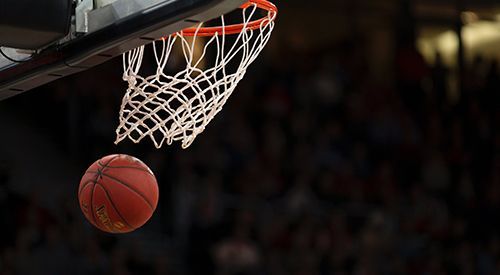ENJOINED TO PLAY—Illini Basketball Player Succeeds on Temporary Restraining Order and Injunctive Relief Against University of Illinois

*** Lavelle Law is not making any statement as to the underlying criminal case in this matter, and affords both the victim and accused each their legal rights.***
On December 27, 2023, University of Illinois at Urbana Champaign (“Illinois”) Basketball Star Terrence Shannon Jr. (“TJ” or “Plaintiff”) was arrested on rape and sexual assault charges in the state of Kansas. He is accused of inappropriate sexual conduct with a young woman when he went to visit the University of Kansas on September 8, 2023, for an Illinois-Kansas football game.
On December 28, 2023, the University Of Illinois Division Of Intercollegiate Athletics (“DIA”) provided formal written notice to TJ of his indefinite suspension from all team activities. After this suspension, a panel convened within 48 hours of notice to TJ of the suspension to determine if the ban on team activities should remain in place. TJ submitted a personal statement and a supporting letter from his attorneys, but could not present a defense nor see the evidence that the panel considered in ruling that his suspension was appropriate.
While out on suspension, TJ's legal team filed a Complaint and Emergency Motion for TRO and Injunctive Relief (Terrence Shannon Jr. v. The Board of Trustees of The University of Illinois, and Timothy Kileen, in his official capacity, Case No. 24-CV-2010). The injunctive relief sought, barring the school from banning him from team activities while his criminal case is still pending, is the focus of this article.
The standard used for determining if a Plaintiff should obtain preliminary injunctive relief contains four factors: Plaintiff must show 1) he has a protected right; (2) he will suffer irreparable harm if injunctive relief is not granted; (3) his remedy at law (meaning money damages) is inadequate; and (4) there is a likelihood of success on the merits.
After considering arguments from both TJ and the University, the Court found in favor of TJ. The Court found that TJ had a likelihood of success on the merits in his underlying claim against President Timothy Killeen under 42 U.S.C. § 1983, also known as the Civil Rights Act of 1871 (“Civil Rights Act”) for deprivation of TJ’s protected interests without procedural due process.
The Court reviewed the required factors for a Civil Rights Act claim, which include a property interest, a liberty interest, and procedural fairness. The court found that TJ could have success on this claim because a court could find that his participation in athletics and his future earning potential as an NBA player is protected under the 14th Amendment, and in turn, created a contractual right and legitimate claim of entitlement to not be suspended from the team without good cause. Further, the court opined that TJ’s suspension could deprive him of a protected liberty interest, which is the freedom to pursue a career of his choice in basketball, and that reputational harm was inflicted as he was wrongfully suspended for allegations of sexual misconduct without affording him adequate due process. Finally, the Court found that there was a likelihood of success as to the inadequate procedural safeguards afforded to TJ during the DIA disciplinary process. The DIA did not afford him the opportunity to view the evidence against him, nor was he allowed in the hearing that determined staying his suspension or given a recording or a transcript of the proceeding. There was no written decision provided to TJ, nor an avenue to appeal the decision to uphold his suspension.
Further, the Court found, using relevant case law (Ganden v. NCAA, 1006 WL 680000 at *6 (ND Ill. Nov. 21, 1996), Huntsonville Cmty. Unit Sch. Dist. No. 1 v. Illinois High Sch. Ass’n, 195 N.E.3d 662 (5th Dist. 2021)) that TJ would be irreparably harmed as 1) his draft stock had already begun to plummet since his suspension, 2) he could lose compensation through loss of his NIL deal as his name, image, and likeness is worth very little if he is not on the basketball court, and 3) he loses opportunities to play basketball at the highest level on a national stage. Most importantly, even if the charges against him are dismissed, or he is acquitted on said charges after the conclusion of the basketball season and the NBA draft, the Court found that TJ would not have an adequate remedy at law. The court opined that at that point, TJ would have already suffered irreparable harm. PDF of Opinion
As demonstrated through this case, swift injunctive relief can serve as a key litigation strategy in order to obtain equitable (non-monetary) relief. If you are seeking emergency injunctive relief for yourself or your business, or need assistance in any other complex business litigation matter, Lavelle Law Attorneys would love to assist you. Please contact the authors, Matthew Sheahin, msheahin@lavellelaw.com, MaryAllison Mahacek, mmahacek@lavellelaw.com, or any of our litigation attorneys for a free consultation.
More News & Resources
Lavelle Law News and Events












